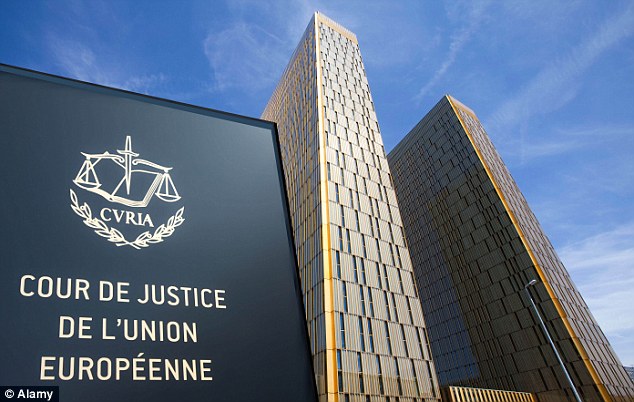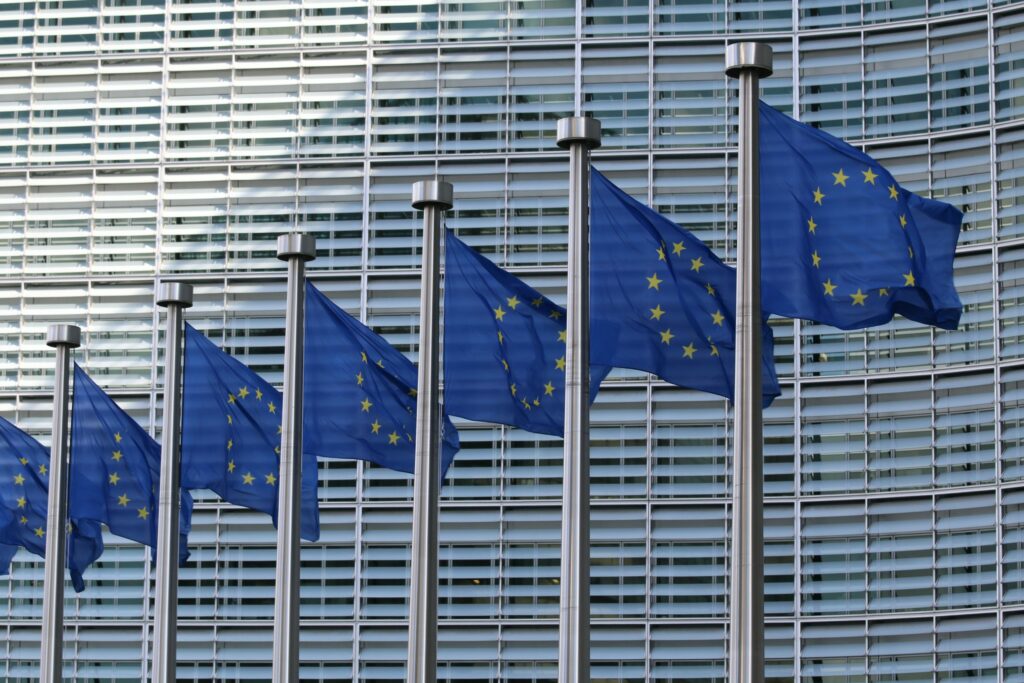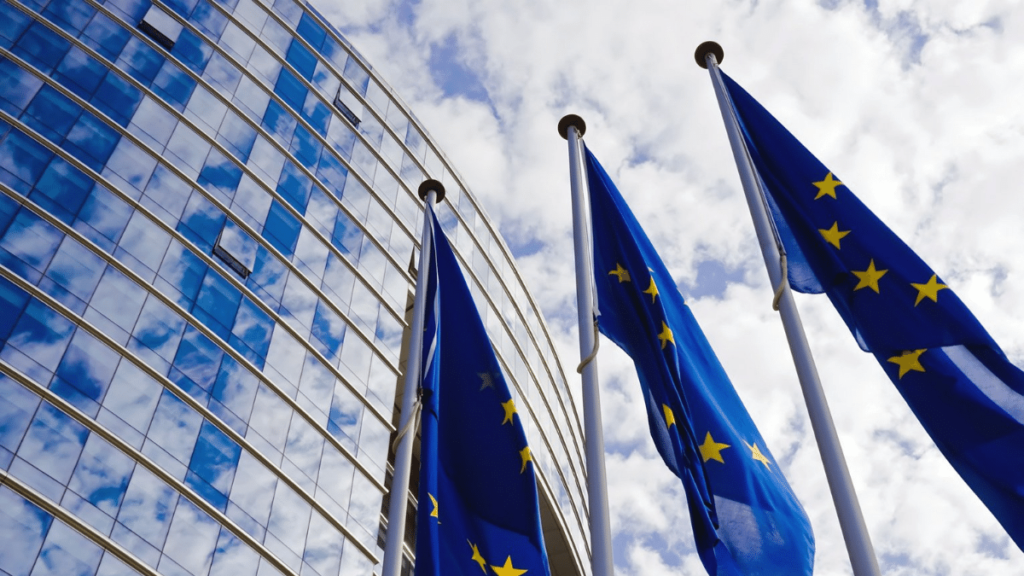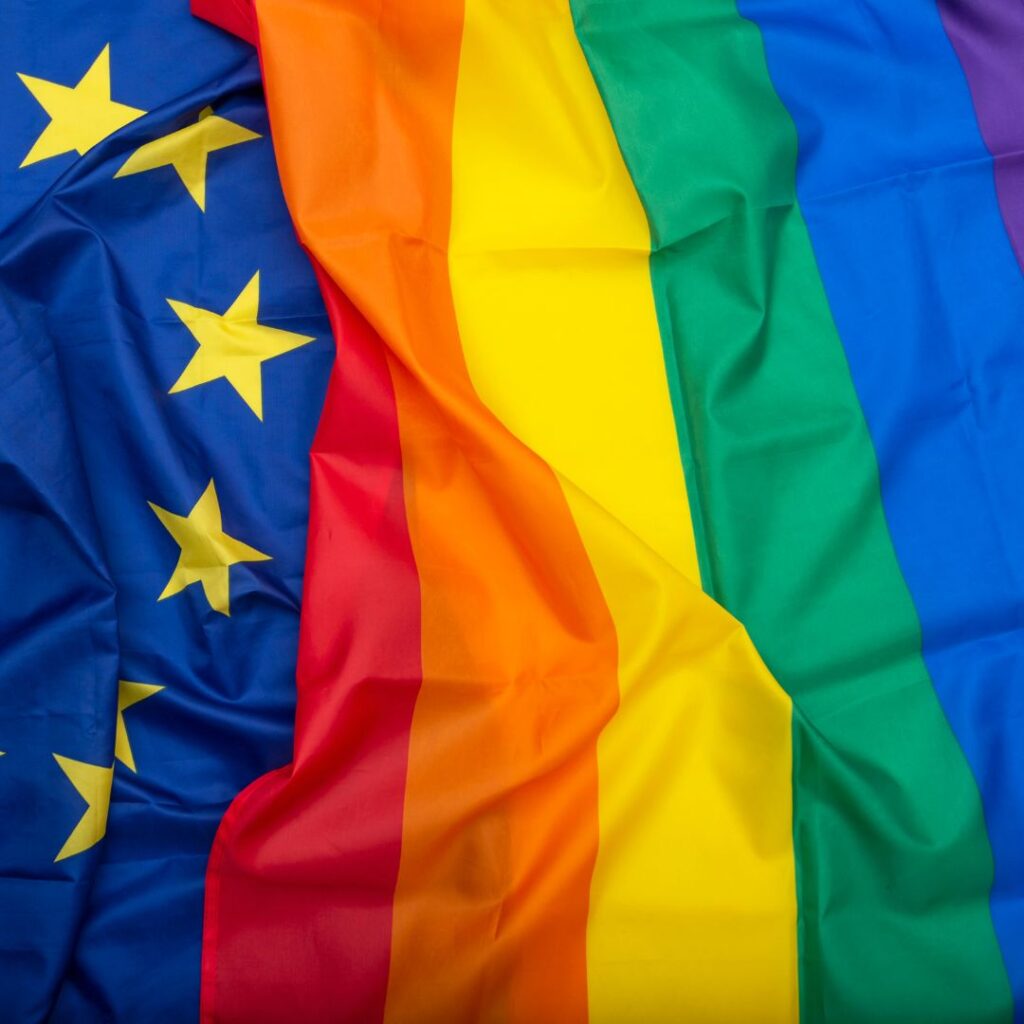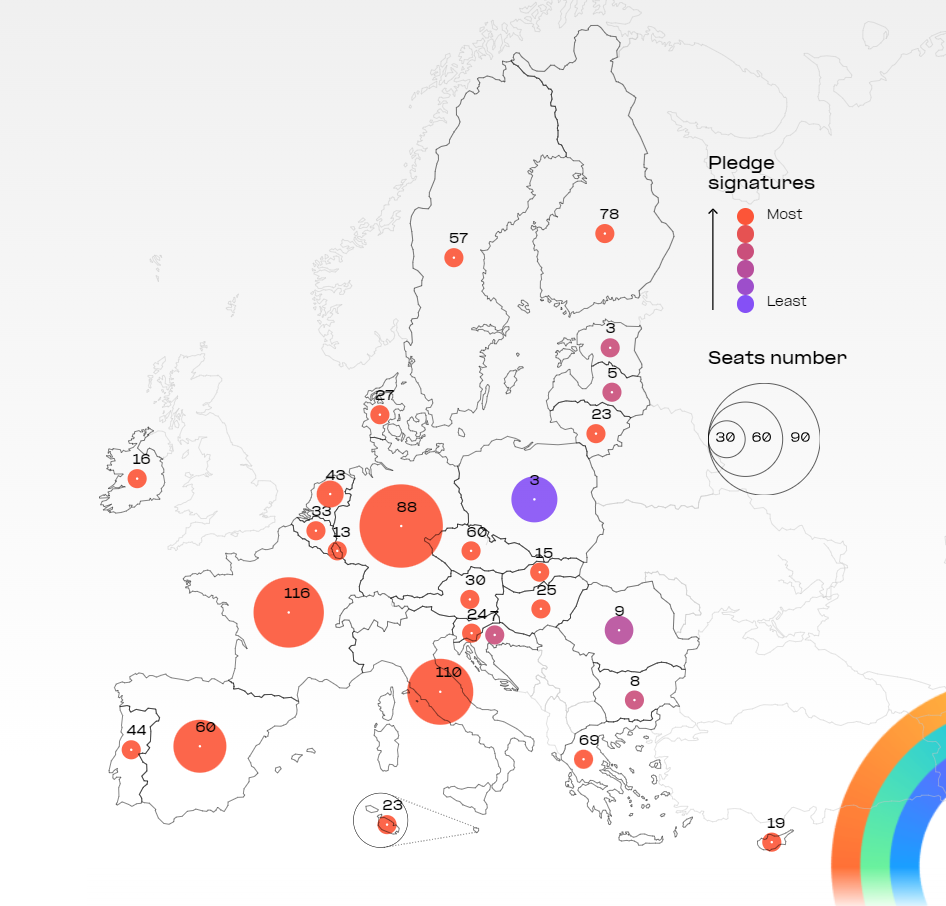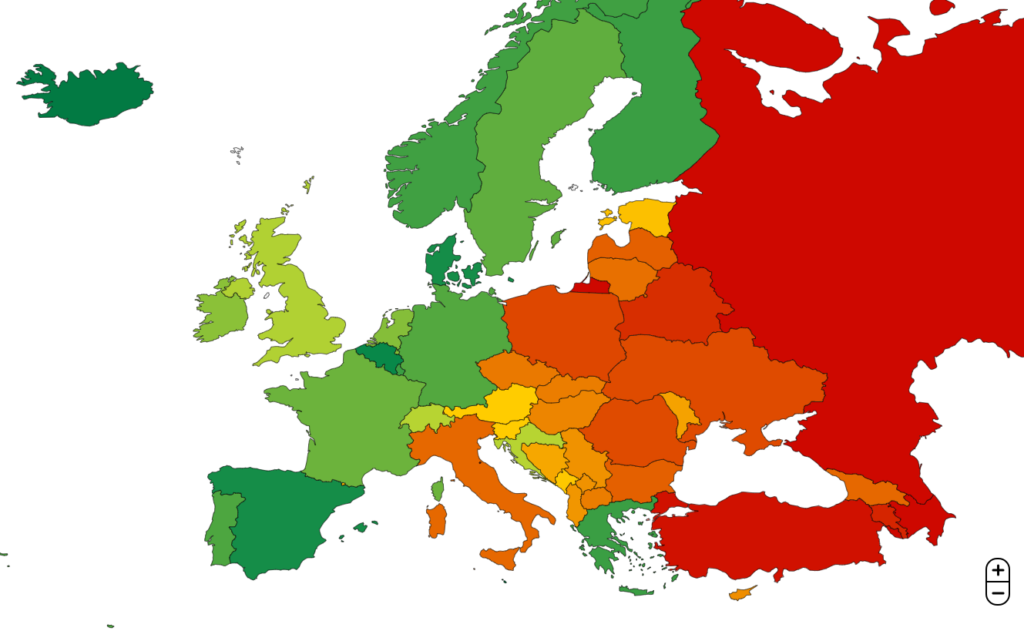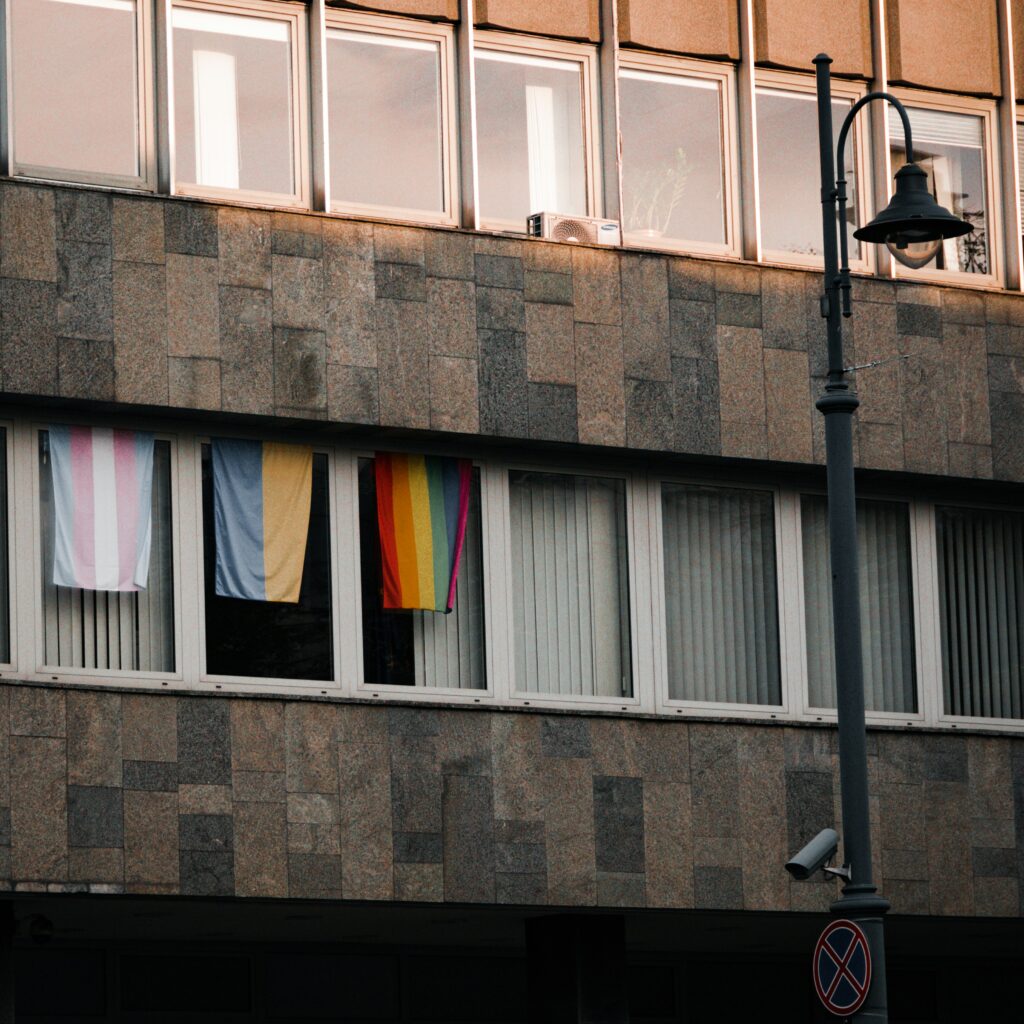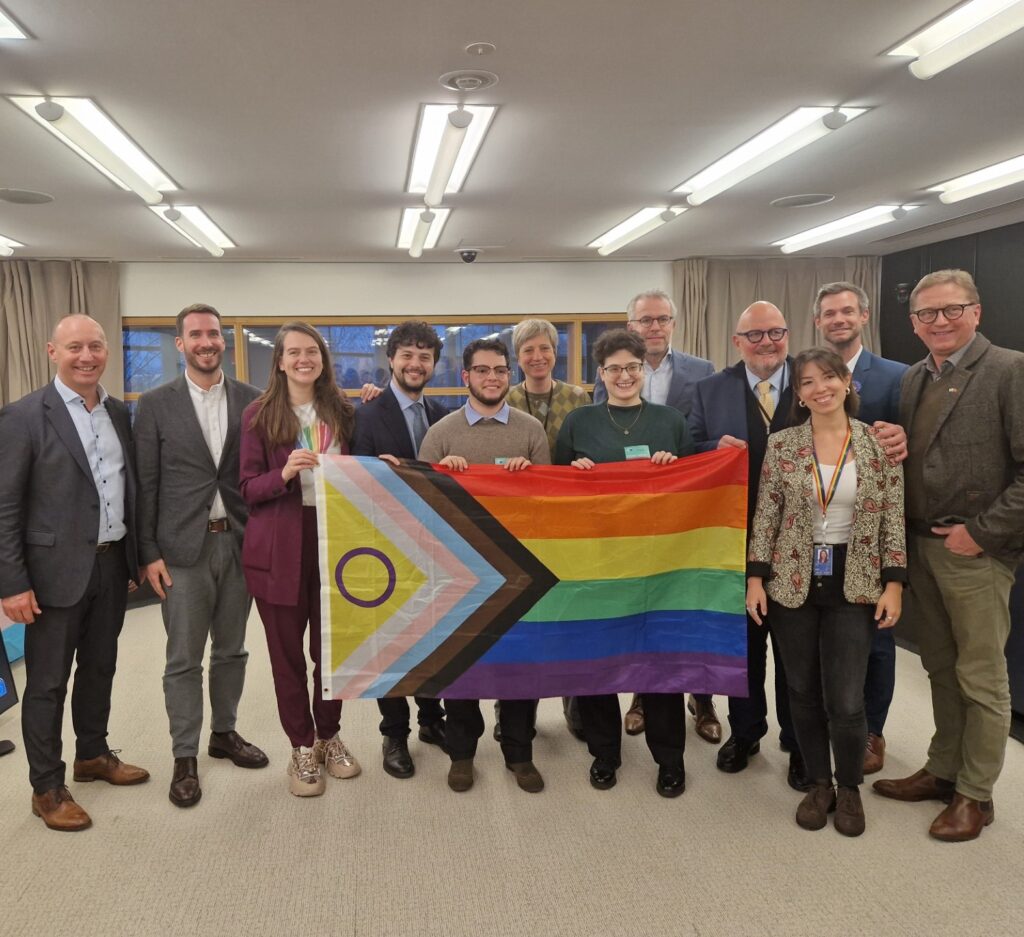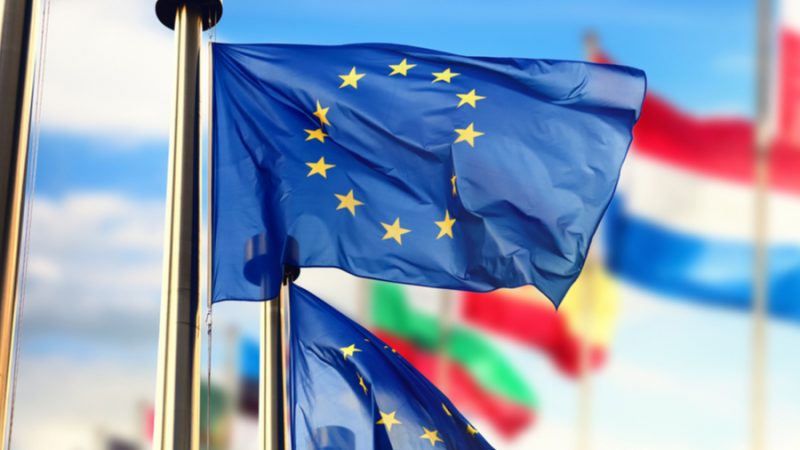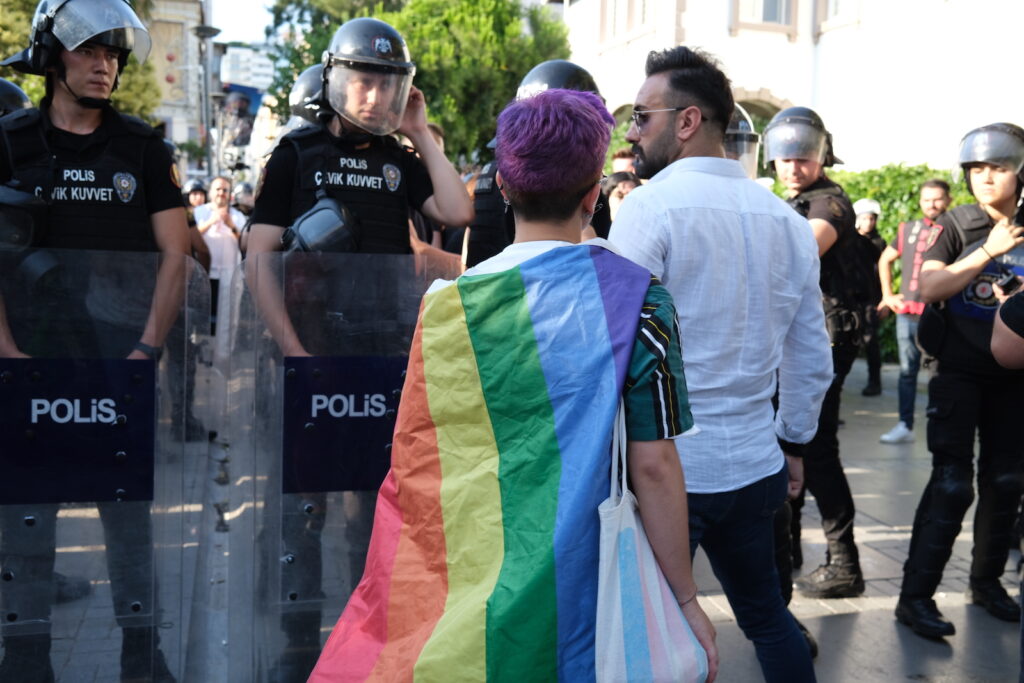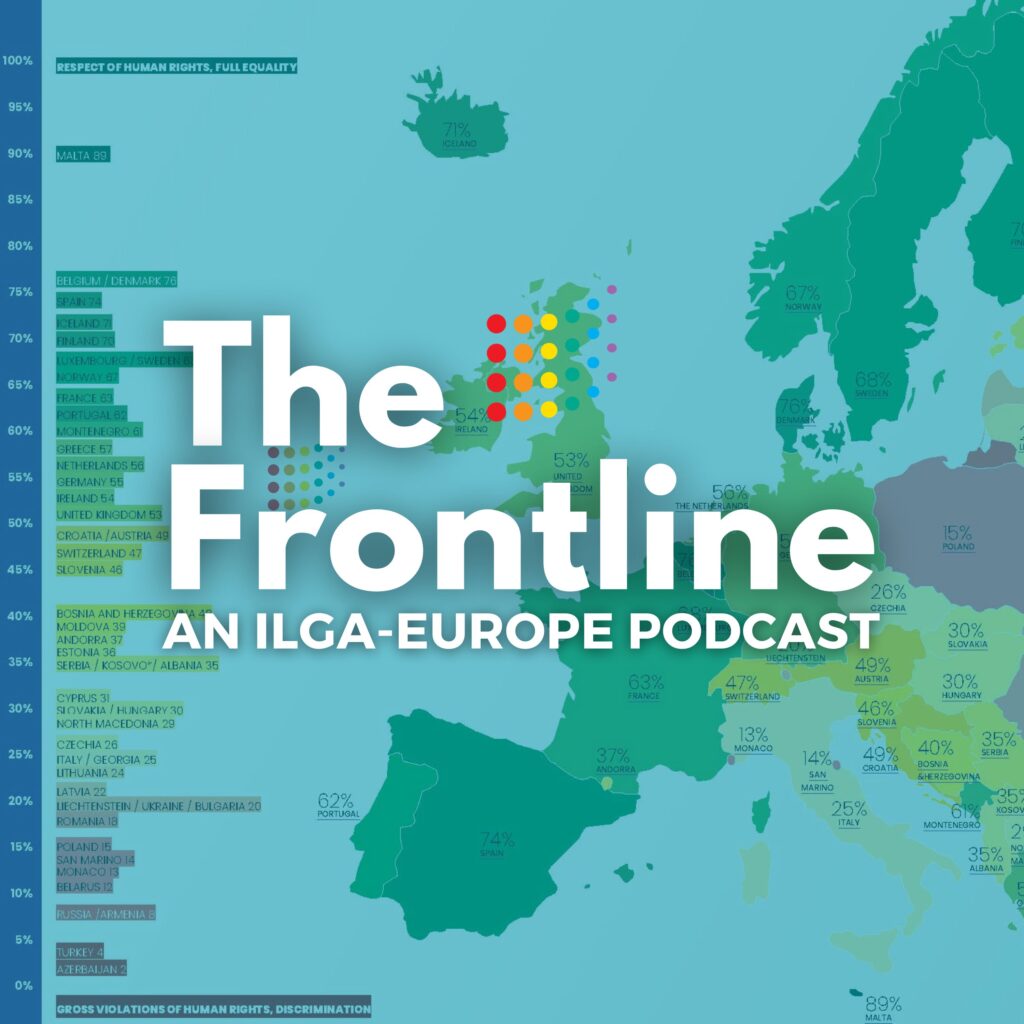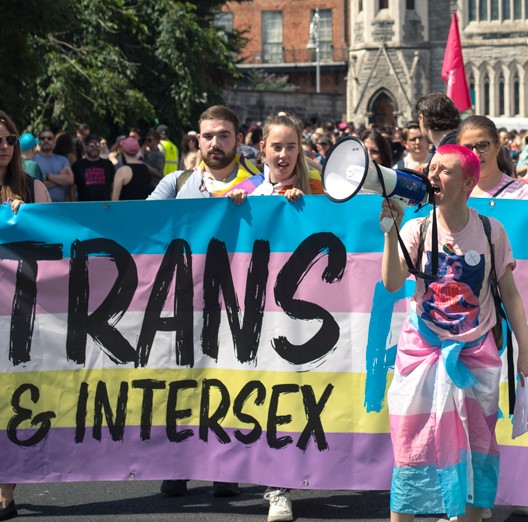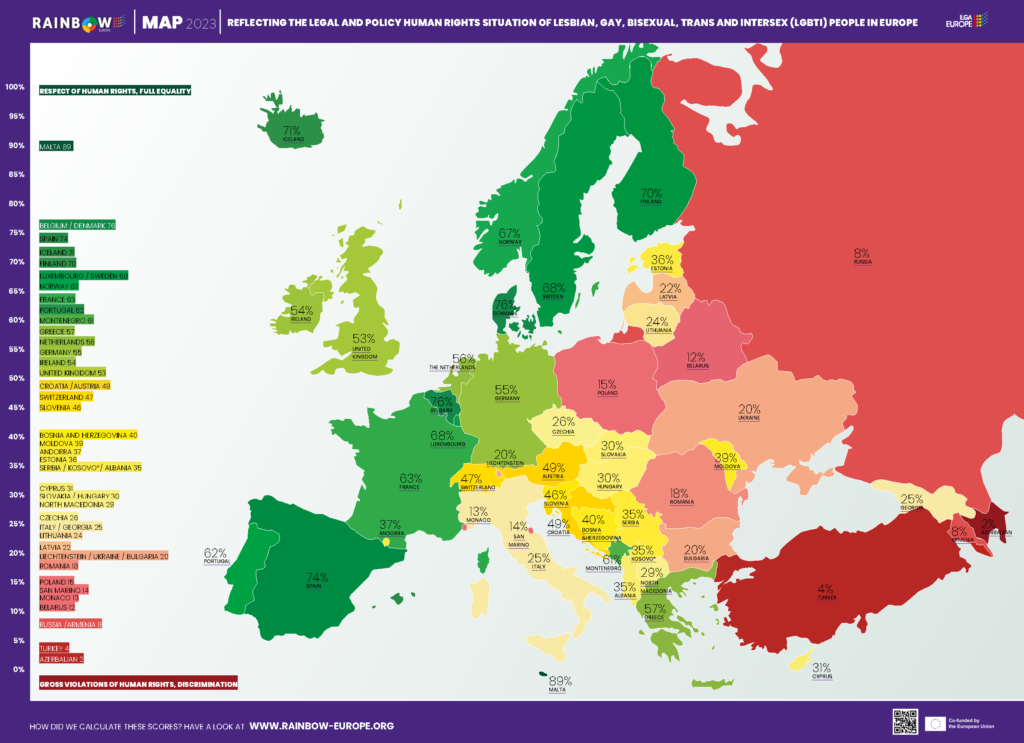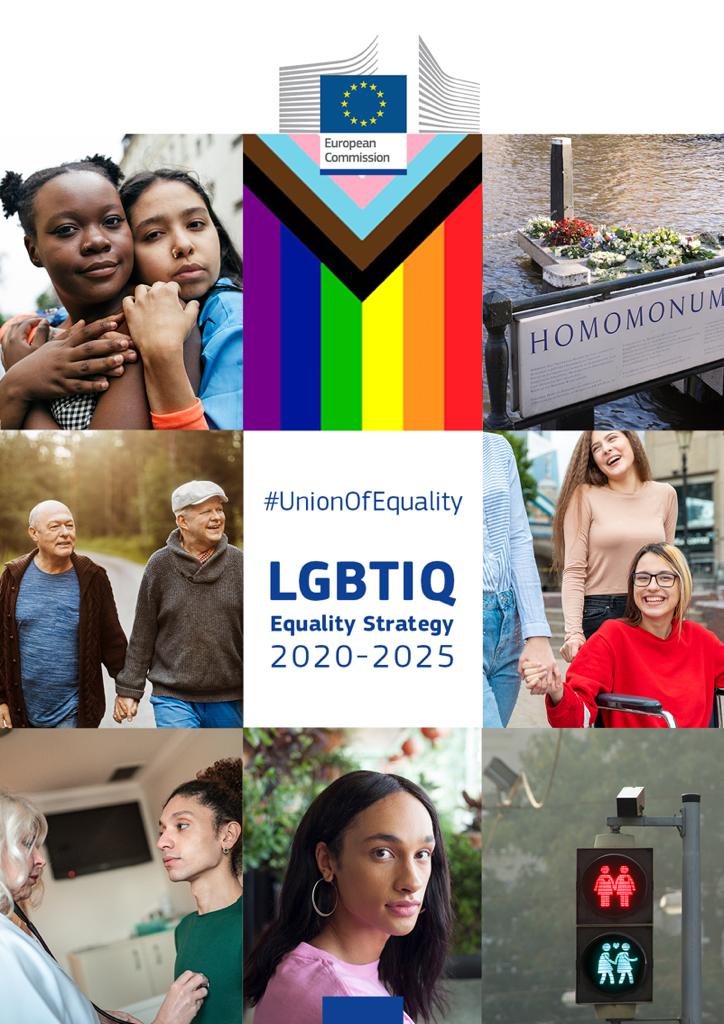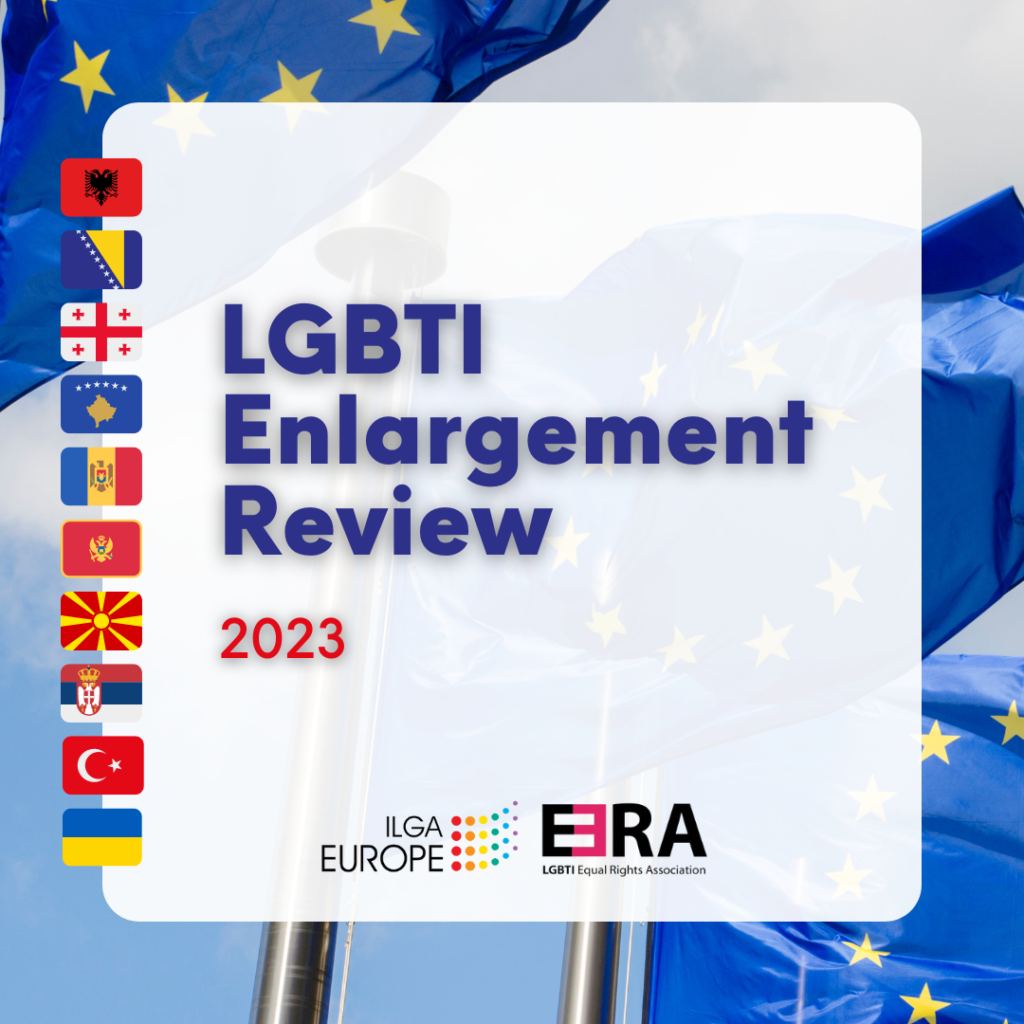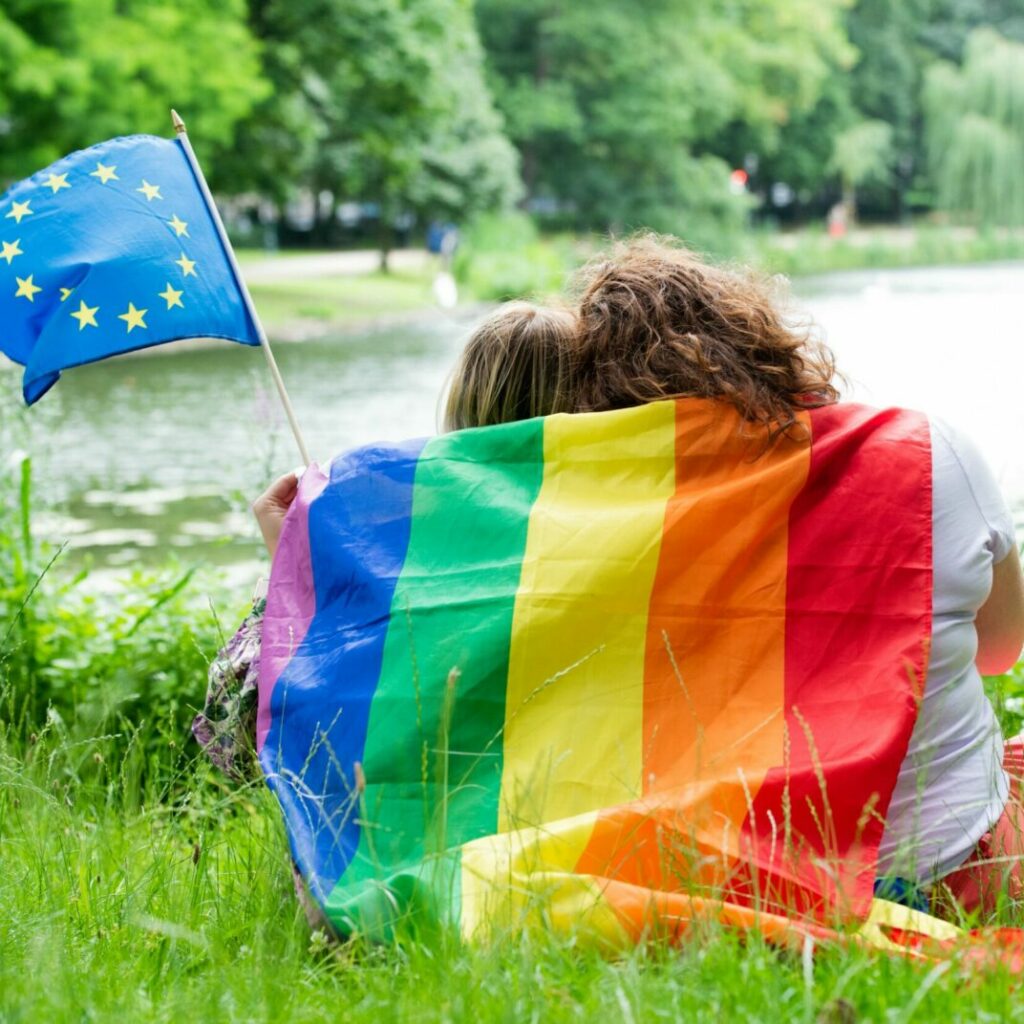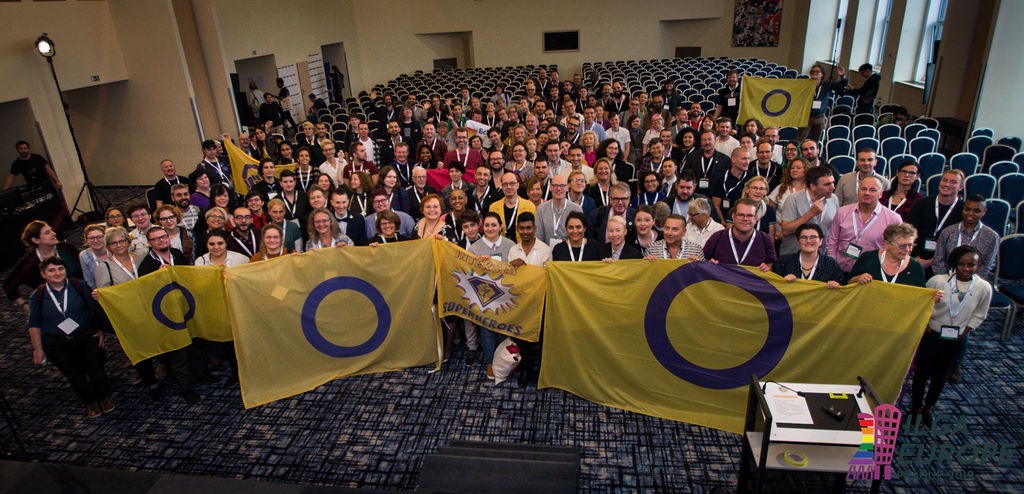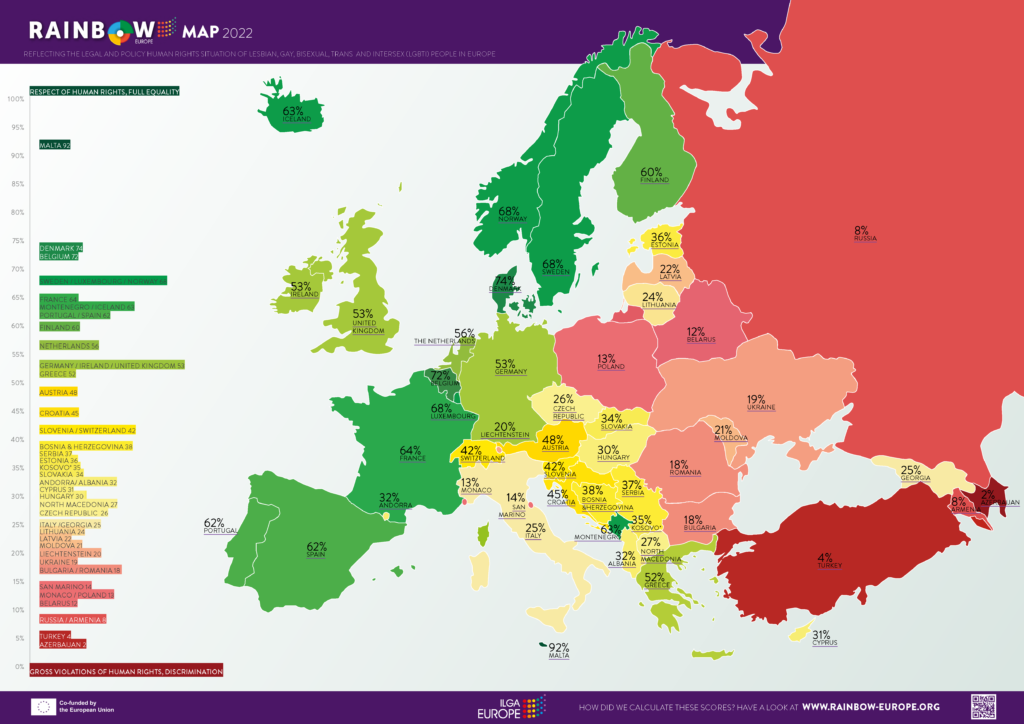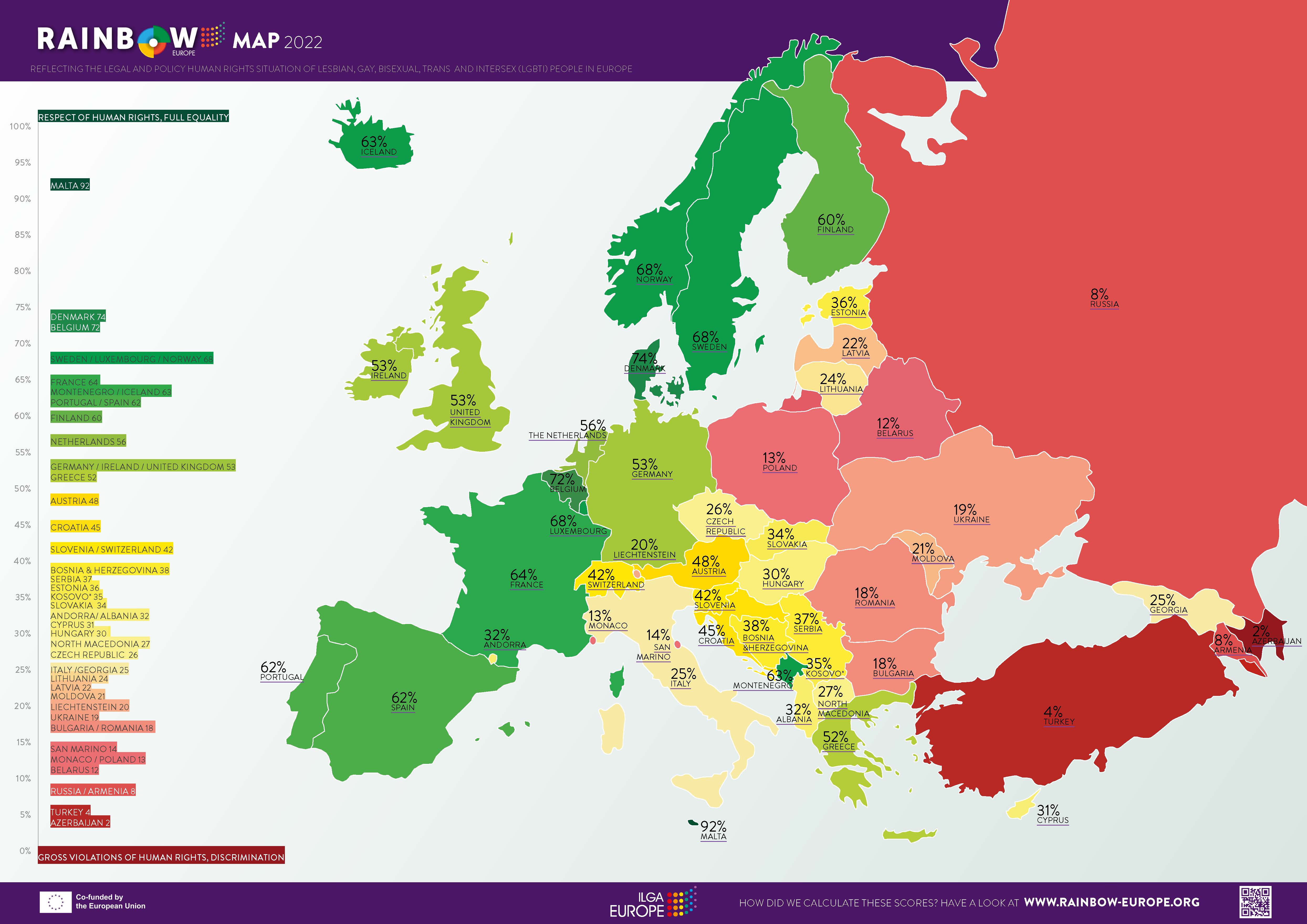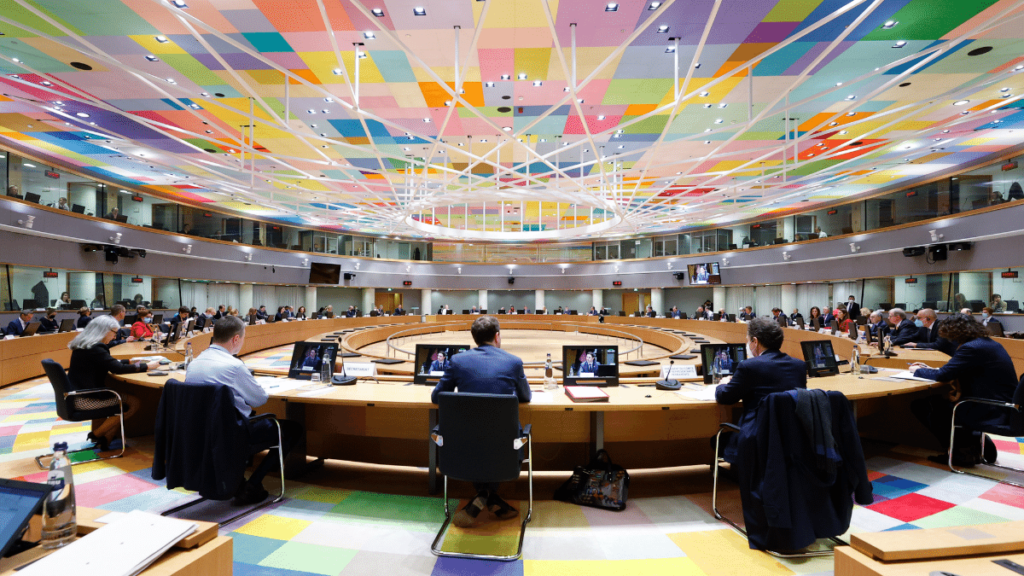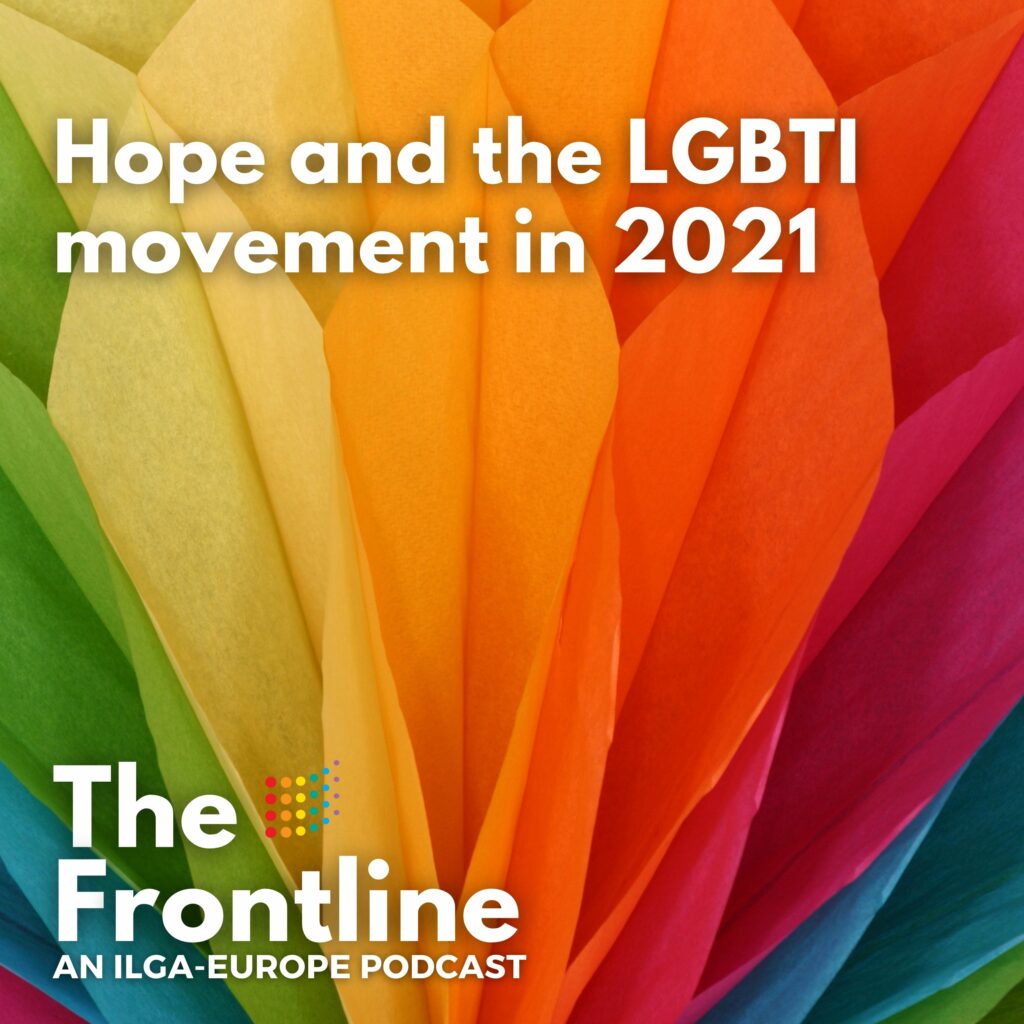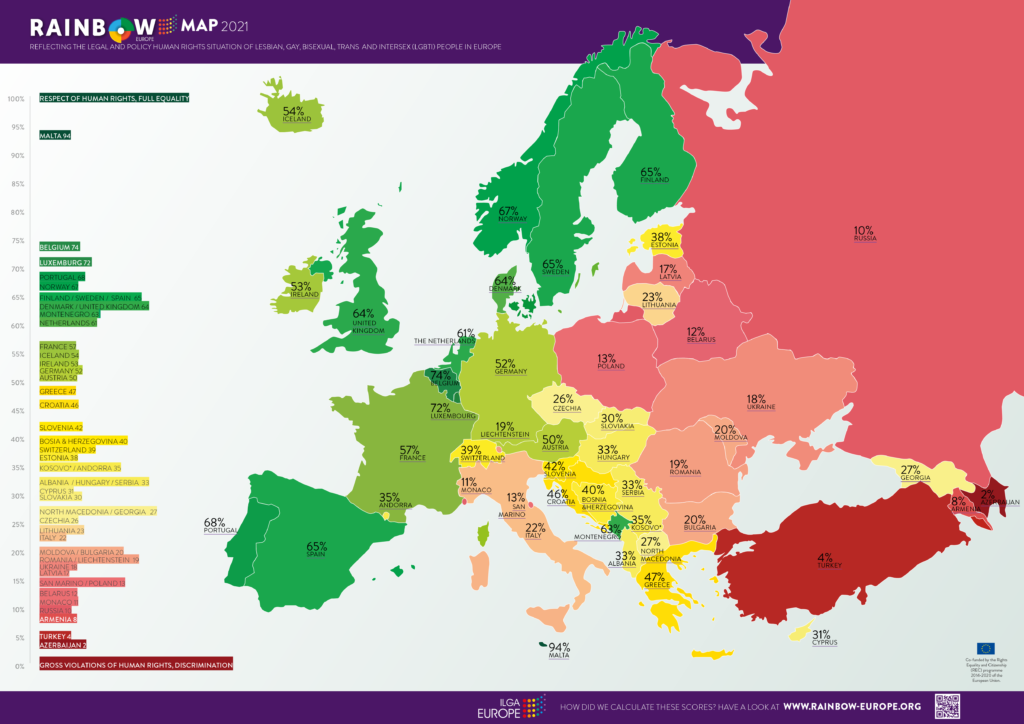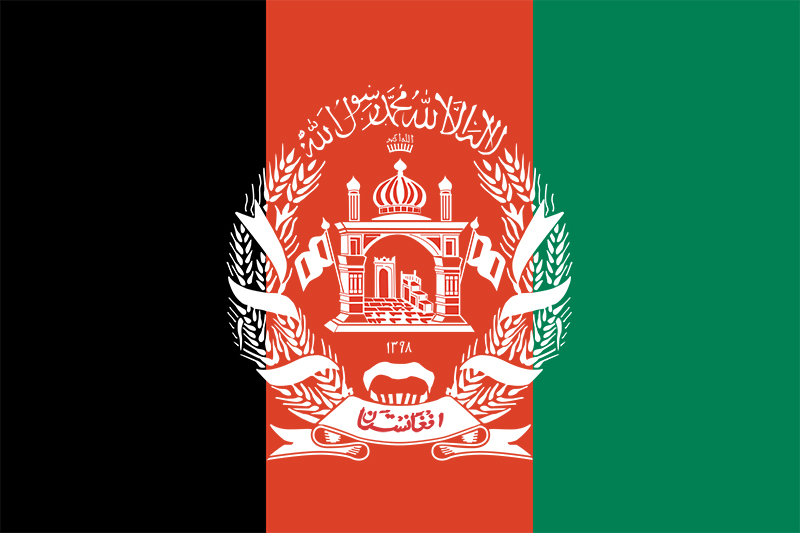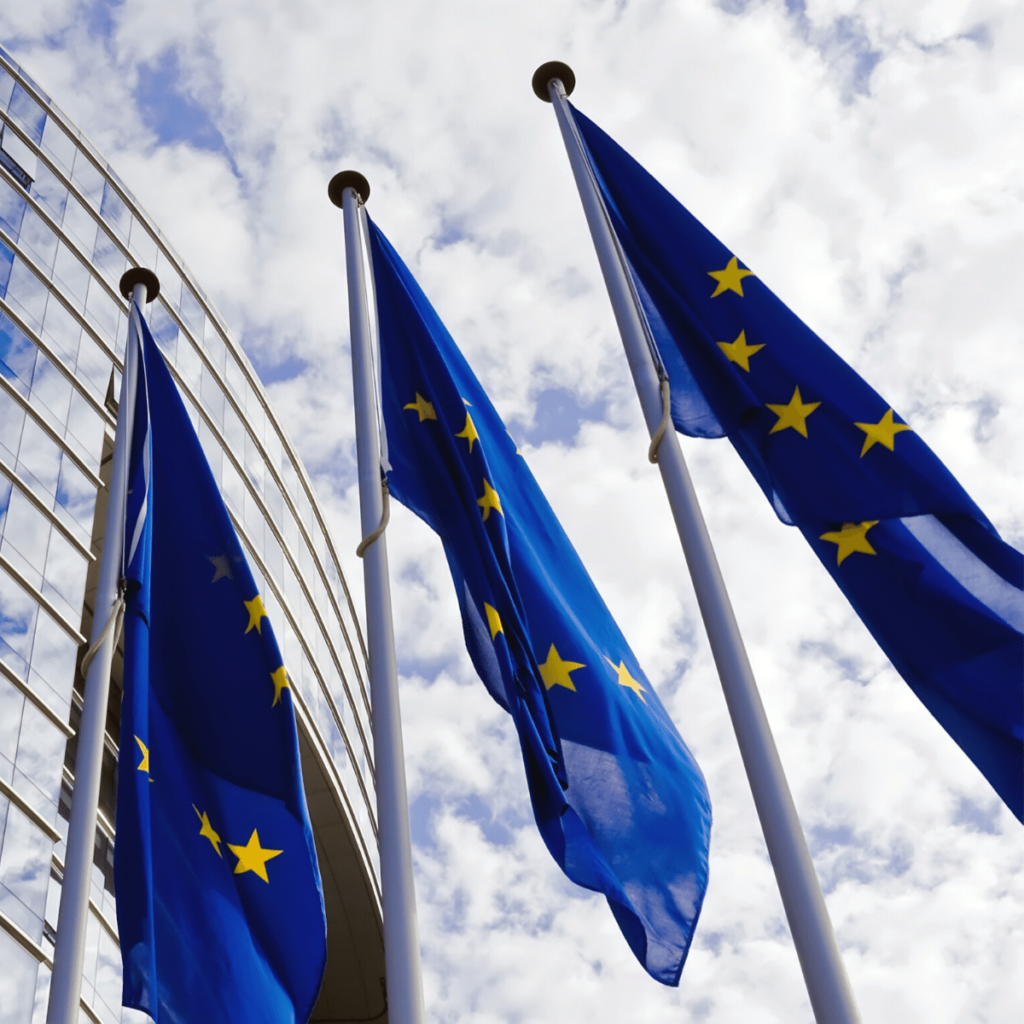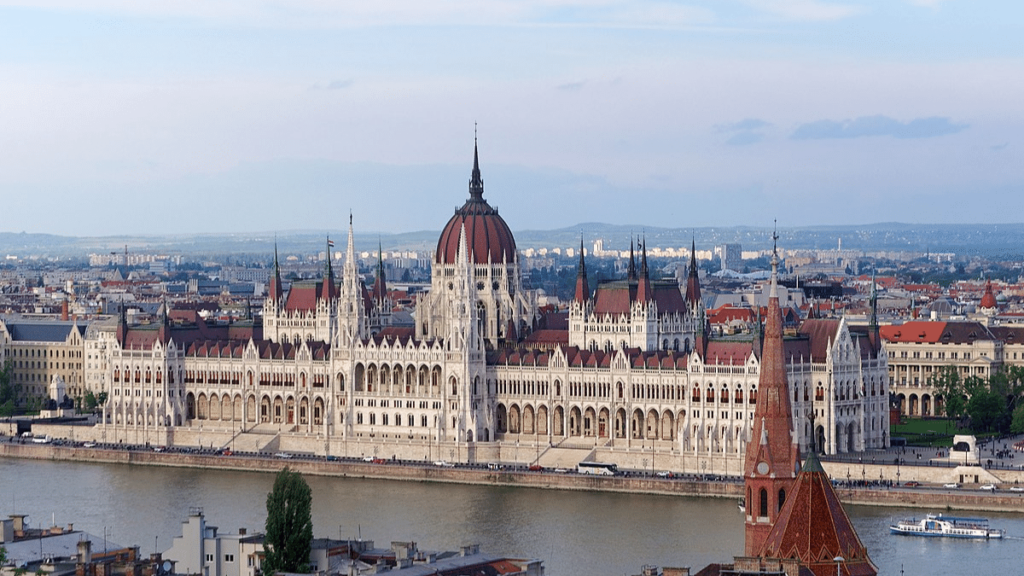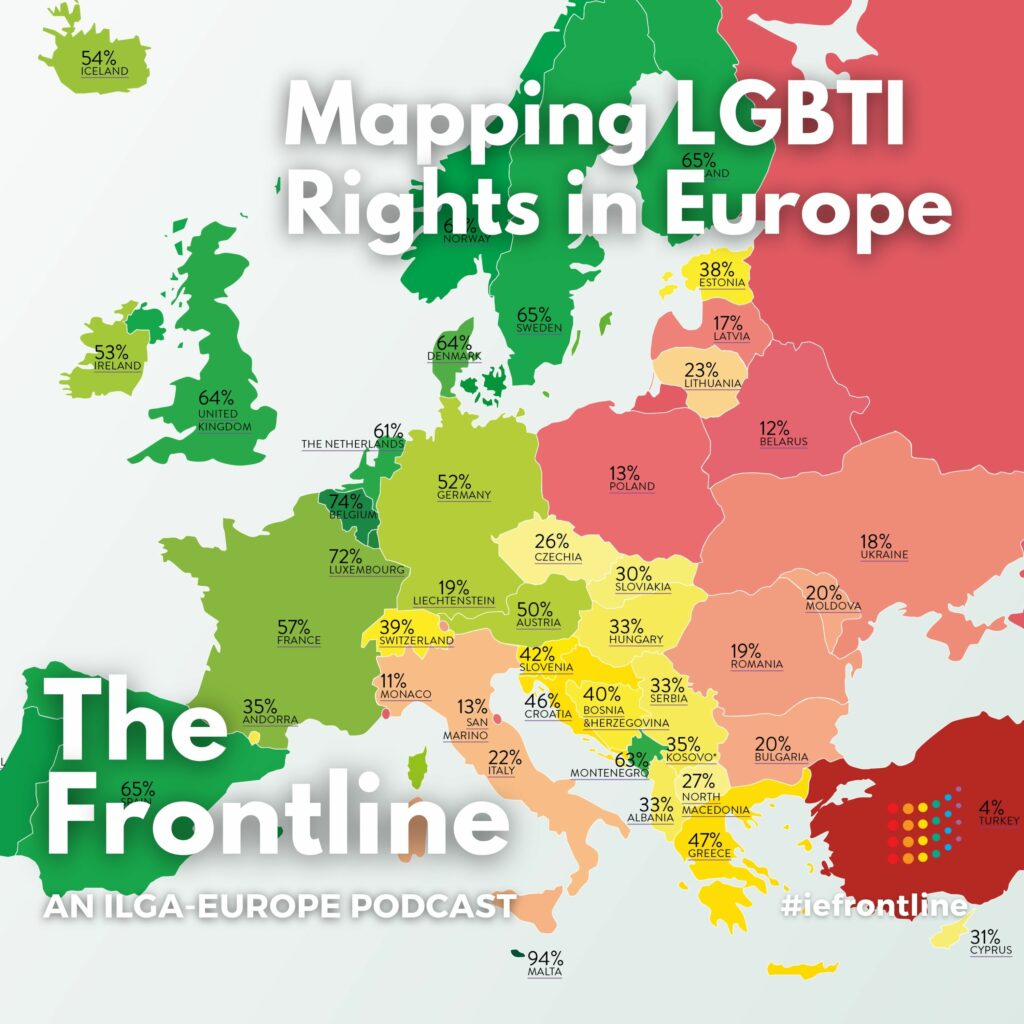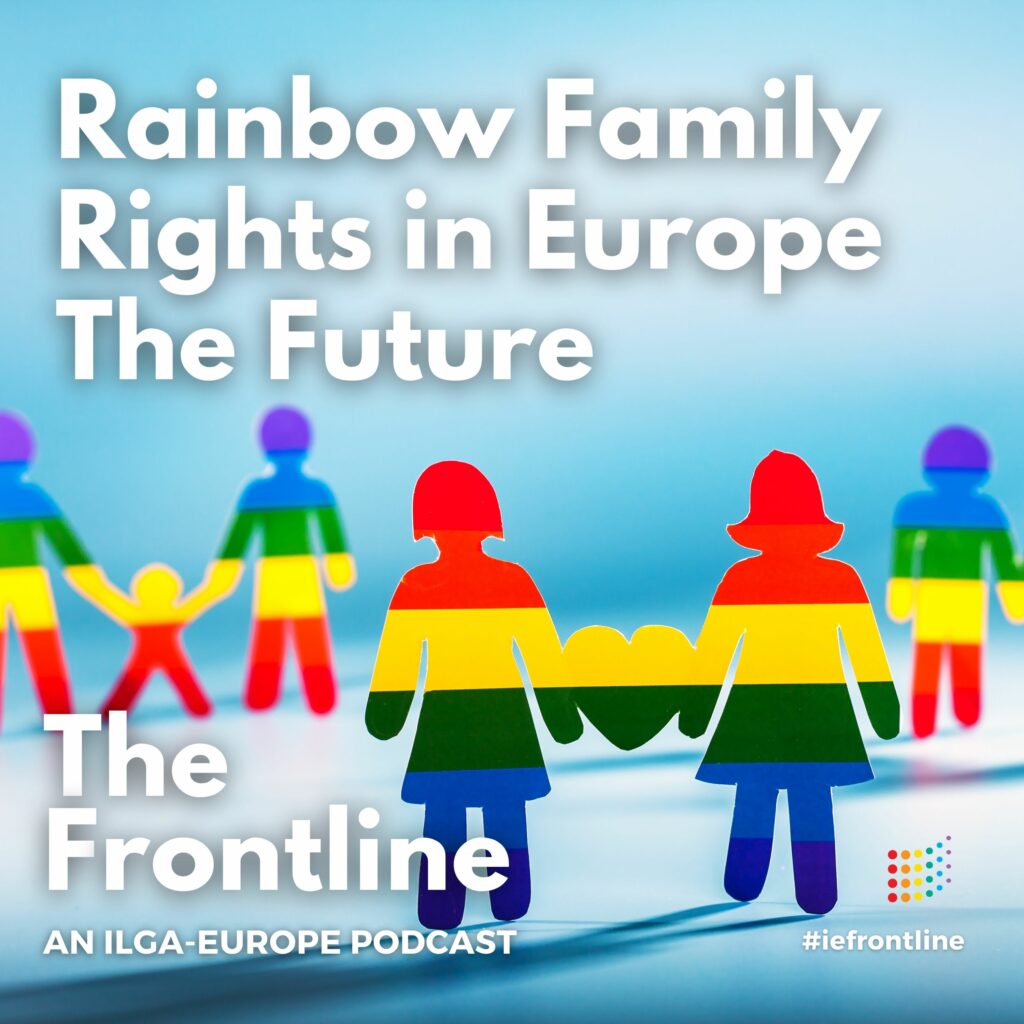Slovakia
Categories Score
The full bar chart stands for 100%, and is filled by the country category score. The colour display uses the traffic light palette, with Green representing a score closer to 100% and Red a score closer to 0%.
ASYLUM
This category looks into laws that expressly include SOGISC as a qualification criteria for seeking asylum. We also take into account other legislation, policies, instruction or positive measures by state actors that are related to asylum addressing the needs and rights of LGBTI asylum seekers and refugees.
Criteria Compliance Ratio
Each pie charts stands for a category and is divided in slices by criteria. When a country complies with a criteria – fully or in some regions – the slice is coloured.
Keep in mind the criteria have different weighting factor within a category; for example, the criteria Prohibition of medical intervention without informed consent (intersex) stands for half (2.5%) of the INTERSEX BODILY INTEGRITY category weighting factor (5%). Meaning that even if a country can only comply with this specific criteria within the category (1/4 total criteria) the category scores 50%.
More information on the categories and criteria weighting factors here.
Category & Criteria Table
The table lists detailed information and insights on legislation supporting each criterion status. Please use the filters for in-depth analysis.
n/a = not applicable, meaning the criteria didn’t exist in the previous Rainbow Map edition (PROGRESSION column)
- Complies
- Applicable in some regions only
- Does not Comply
RECOMMENDATIONS
In order to improve the legal and policy situation of LGBTI people in Slovakia, ILGA-Europe recommend:
- Ensuring access to trans-specific healthcare and legal gender recognition without abusive requirements such as sterilisation, GID/medical diagnosis, surgical/medical intervention, compulsory divorce or age restriction.
- Ensuring that registered partnership legislation to recognise and protect same-sex couples is passed and implemented effectively and that second parent adoption is available for all.
- Specifically including all SOGIESC (sexual orientation, gender identity, gender expression, sex characteristics) grounds in policies designed to prevent and tackle hate crime and hate speech.
Annual Review OF Slovakia
In our Annual Review of the Human Rights Situation of LGBTI People in Europe and Central Asia, we examine the advances made and provide concrete examples of on-the-ground situations at national level country-by-country in the 12 months from January to December 2024.
Read our Annual Review of Slovakia below for more details and stories behind the Rainbow Map. You can also download the Annual Review chapter (.pdf) covering Slovakia.
-
In July, the Culture Minister, Martina Šimkovičová, Slovak National Party (SNS), attributed Europe’s declining fertility rates on the LGBTI community. In an interview with Topky.sk she suggested that the excessive number of LGBTI people is contributing to Europe’s demographic decline, specifically within the “white race.”
-
Following Hungary and Bulgaria, the government attempted to introduce new regulations aimed at restricting “LGBTQ+ propaganda” in schools. The proposed bill, introduced in September by the ruling Slovak National Party (SNS), was intended to “protect children” from influences deemed inconsistent with the national Constitution by amending the Education Act. The bill, backed by four SNS deputies, including party leader Andrej Danko, sought to ensure that the educational processes in schools and school facilities are in accordance with the principles and standards that reflect the cultural and ethical values of Slovak society, and support education for responsible citizenship, respect for biological and social factors and the integrity of family relationships. Schools found in violation of this ban could have faced fines of up to €30,000. Proponents of the bill justified the amendment by referencing Article 41 of the Slovak Constitution, which defines marriage as the exclusive union between a man and a woman. Education Minister Tomáš Drucker firmly opposed the law, arguing that such issues often ignite emotional and ideological debates, detracting from efforts to improve the quality of education. In November, the amendment was rejected by the Slovak Parliament but representatives of the SNS stated that they would continuously resubmit the bill until its adoption.
In October, several schools canceled commemorative events for the victims of a terrorist attack targeting LGBTI people at the queer bar Tepláreň in 2022, following pressure from far-right politicians on social media. Prime Minister Robert Fico further fueled the controversy by declaring that people should report to him any school events promoting LGBTI ideology.
-
In June, the board of the Bibiana Revue magazine, published by the Bibiana children’s art gallery, resigned. The resignation followed a dispute with the magazine’s director over the planned inclusion of a review for a children’s book titled Stáva sa Elu, which addresses topics related to non-binary and trans identities.
In July, Slovakia’s Deputy Prime Minister, Tomáš Taraba, announced that he would skip the closing ceremony of the Paris 2024 Olympics. He declared his decision was in protest against the depiction of the Last Supper presented at the opening ceremony, which he believed was filled with “LGBT ideology” and insulting to Christian symbols.
-
In March, a Slovak citizen who had married a British national in a same-sex marriage and subsequently obtained British citizenship, was informed that his Slovak citizenship was being revoked.
Subsequently, the Slovak Constitutional Court took on the case for further consideration.
-
In July, the 14th annual Pride Festival gathered approximately 10,000 people in Bratislava, despite warnings of a potential terrorist attack on the march. After the event, Deputy Prime Minister Tomáš Taraba, filed a criminal complaint with the General Prosecutor’s Office against the organisers, alleging defamation of the state flag. However, the prosecutor’s office later dismissed the complaint, ruling that the use of the rainbow flag with the Slovak state symbol was unfounded as a legal offence.
In early July, the Slovak parliament passed a controversial law, commonly referred to as “Lex assassination” (“Lex atentát”), through an expedited legislative procedure which led it to come into effect on July 15. Human rights organisations have expressed alarm over several aspects of the law, notably the prohibition of all gatherings within 50 metres of designated sites. The law also expands the grounds on which assemblies can be banned, introducing vague and subjective criteria that make it easier for authorities to restrict peaceful gatherings. Despite the implications of these changes, there has been no comprehensive analysis of the law’s full impact, and key stakeholders, including civil society, were excluded from the legislative debate. The law places an unreasonable level of responsibility on municipalities, granting them the power to ban gatherings based on ill-defined concepts like public order or potential conflict, both of which lack clear legal guidelines. This creates the risk of inconsistent interpretation and arbitrary enforcement.
-
In September, the Slovak National Party (SNS) submitted a proposal to the Slovak parliament for a law banning the display of flags other than the Slovak, European, and municipal flags on state buildings. The bill, which is gaining traction, aims to restrict the display of non-official flags, such as the rainbow flag, on state properties. Although the law is generally framed as a ban on all flags except these three, its proponents have clearly stated that its primary aim is to prohibit the rainbow flag.
In August, protests erupted in Slovakia in response to the actions of the country’s Culture Minister, Martina Šimkovičová, who dismissed artists for refusing to align with her vision of culture, which she states must not promote what she considers to be “LGBT ideology.”
In September, opposition politician Lucia Plaváková (Progressive Slovakia, PS) faced a verbal attack by Andrej Danko (Slovak National Party, SNS), the deputy speaker of the parliament, and Tibor Gašpar (SMER), due to the presence of rainbow stickers on her computer. In a press conference following the incident, SNS deputy Rudolf Huliak escalated the situation by referring to Plaváková with a derogatory term, calling her a “s*ka” (roughly translated as “bitch”). Huliak later attempted to justify his remarks by claiming he was overwhelmed by emotions, arguing that PS’s supposed promotion of “their ideology” affected him personally.
-
In April, the Health Ministry announced the discontinuation of a series of standards outlining the necessary steps in medical transition. The decision was justified on the basis of alleged administrative and implementation-related issues. LGBTI organisations argued that the Health Ministry’s decision to cancel transgender care standards was part of a political trade-off in exchange for the Slovak National Party’s endorsement of Hlas Party’s presidential candidate, Peter Pellegrini. The organisations emphasised that the decision came just days before the presidential election.
-
In February of this year, the Ministry of Justice cancelled the only subsidy call for its Human Rights 2024 Program, effectively halting the provision of financial grants to human rights non- governmental organisations. The decision came just one day before the scheduled oral hearings of subsidy applicants and was made without any substantial justification from the department. These grants were a crucial source of funding for NGOs involved in informal education, supporting disadvantaged population groups, and advocating for LGBTI rights. Compounding this issue, the Ministry of Culture, under the leadership of Minister Martina Šimkovičová (SNS), also terminated all grants aimed at supporting NGOs working to protect LGBTI rights.
-
In 2024, the Ministry of Health in Slovakia canceled the guidelines for legal gender reassignment. While the process is still technically allowed under existing laws, registries have stopped performing gender reassignment procedures. Additionally, the Ministry of the Interior has refused to issue an instruction to resume these procedures, causing significant concerns for trans people.
Slovakia mandates trans people to undergo transition-related surgeries and obtain certification from a medical professional to have their gender identity legally recognised. In November 2023, the government reversed guidelines that had previously allowed trans people to update their gender marker on legal documents without the need for surgery.
In May, a proposed amendment to Act No. 301/1995 failed to pass the second reading. The amendment sought to alter the law on birth numbers by mandating that only “biological sex” be recorded on official documents.
-
In 2024, projects related to LGBTI rights were excluded from the evaluation of grant schemes at the Slovak Ministries of Culture and Justice, despite receiving scores that would typically qualify them for support.
In January, Culture Minister Martina Šimkovičová announced plans to cut funding for Pride events and LGBTI educational programmes. In a Facebook statement the Minister expressed her intention to halt what she described as the exploitation of department funds. In January, the director of the Kunsthalle Bratislava art gallery resigned following the Culture Ministry’s decision to halt funding for the institution’s 2024 artistic and educational programmes. The organisation expressed alarm on social media, questioning the ministry’s commitment to the independence and freedom of cultural institutions.
In July, Slovakia’s Foreign Ministry abruptly removed gay diplomat Metod Špaček from his position as permanent representative to the United Nations in New York, in a move that is deemed political.
In September, in response to actions by the Ministry of Culture led by Martina Šimkovičová (See more under Freedom of Expression), hundreds of cultural organisations, including theaters and galleries, threatened to go on strike. Their discontent stems from the Ministry’s moves against cultural institutions, including dismissals of management at prominent organisations, and its criticism of liberal art and LGBTI educational initiatives. In response to these actions, the Culture Strike initiative, which represents over 340 organisations, and raised alarms and warned that a full strike may follow if their concerns aren’t addressed.
In October, Zuzana Ťapáková, the new director of the Slovak National Theatre (SND), canceled a scheduled performance of Moonstone by Prague’s Studio of Heroes, which was set to be part of the Drama Queer festival. Ťapáková’s decision was seen as discriminatory by festival organizers, who accused her of censorship.
-
In 2024, the Slovak government continued to dismantle independent institutions designed to combat corruption, which also led to the abolition of specialised units within the police and prosecution dedicated to tackling extremism and hate crimes against LGBTI people.
In January, Special Prosecutor Daniel Lipšic announced that the investigation into the October 2022 attack on the Tepláreň gay bar in Bratislava was concluded. Lipšic confirmed the perpetrator was a secondary-school student who took his own life following the attack.
In September, two individuals were arrested and charged with leading Terrorgram Collective, an online white supremacist group that promoted hate crimes and terrorist attacks. The group has been linked to the deadly shooting at a queer bar in Slovakia in October 2022, which resulted in the deaths of two people. New details suggest that the Terrorgram Collective played a role in inspiring the attack, as the shooter had been influenced by the group’s rhetoric.
The full Annual Review for 2025 is available here.



